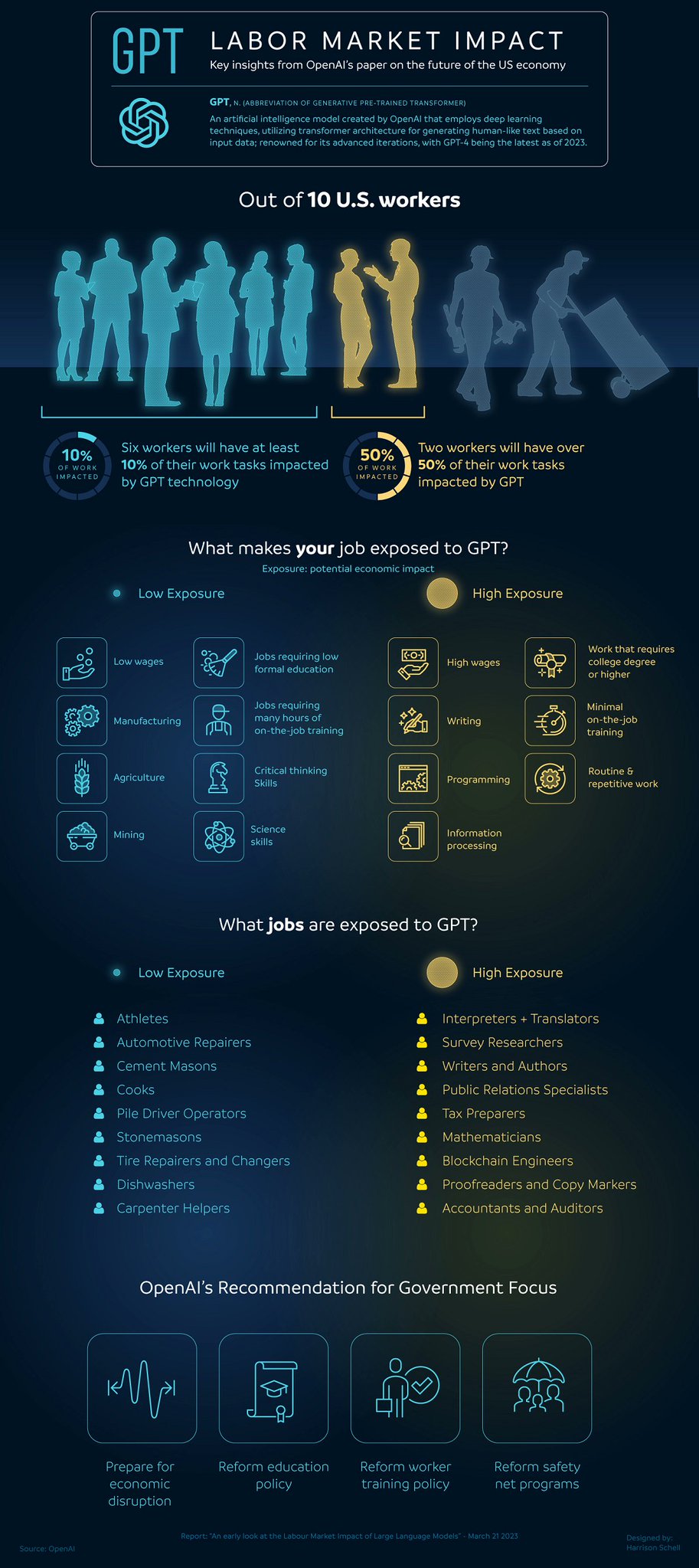this post was submitted on 27 Jul 2023
239 points (84.0% liked)
Technology
59414 readers
3138 users here now
This is a most excellent place for technology news and articles.
Our Rules
- Follow the lemmy.world rules.
- Only tech related content.
- Be excellent to each another!
- Mod approved content bots can post up to 10 articles per day.
- Threads asking for personal tech support may be deleted.
- Politics threads may be removed.
- No memes allowed as posts, OK to post as comments.
- Only approved bots from the list below, to ask if your bot can be added please contact us.
- Check for duplicates before posting, duplicates may be removed
Approved Bots
founded 1 year ago
MODERATORS
you are viewing a single comment's thread
view the rest of the comments
view the rest of the comments

It's not bad.
There's one thing that people tend to neglect that I like to remember--it's going to be awhile yet before an AI can walk up to your door, knock, come in and find the specific nature of a plumbing/electrical/HVAC or whatever problem, and then diagnose and fix it. And then get safely home without getting hit by a truck or vandalized by bored teenagers or both.
That's such a complex suite of different "problems" that we're going to need nothing less than a general AI to navigate them all. Thus, one of the last jobs that'll be replaced is various kinds of repair professionals that do house calls. The constant novelty of the career, where every call is its own unique situation, is a nightmare for a current-method AI.
I kind of feel like it's a bit overwrought - and not supported by current tech anyway. I could predict where the tech will go, but I don't think that's possible to do in a reasonable way over a useful time-span for this.
Lets look at the proposed affected jobs(I'll leave out the ones I just don't have enough knowledge about to even hazard a guess):
Interpreters + Translators: I haven't tried GPT for this, but I imagine it's likely not too much more affecting than google translate. For people and situations where machine translation is good enough - this has been happening for quite a while. I have my doubts that this will change the trajectory of that field. Translation seems like something that you can't "edit after the fact" - you have to do the whole translation anyway to see if the machine translation is right or missing important non-literal parts.
Writers and Authors: I can see this speeding their work up, and enabling people who might have story ideas and be a decent editor but not a good first draft writer to become authors. However, writers have been dealing with both lowered standards for technical writing and content glut for many years - I don't think this changes that appreciably.
Public Relations Specialists: I feel like this is massively devaluing the psychology and experience in PR. It might well replace press release writing, but I just bet there's more there than is obvious to everyone.
Tax Preparers: If you're doing fine with TurboTax - you've been doing this for decades now. If you can't solve it with existing traditional tax software, it's often because you just aren't sure about vague tax rules, or complex tax rules. And you usually want someone else to take on some liability and ability to represent you if you're audited. I don't see how GPT changes this fundamentally.
Mathematicians: Really? It's horrible at math.
Proofreaders and Copy Markers: Also really? I feel like for a while at least there's going to be more proofreading of the output of GPT for factual content and style.
You shouldn't trust ChatGPT for that, but your company could definitely spin up their own LLM and then we're back at the problem.